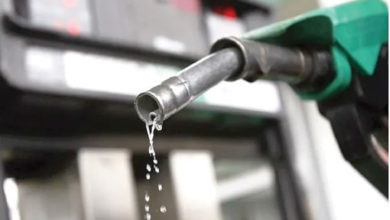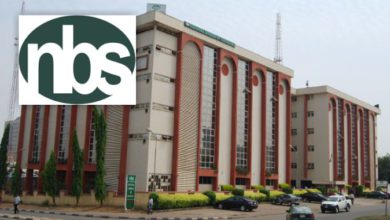
NEEDED URGENTLY – A REJIGGED FINANCIAL MARKETS INFRASTRUCTURE IN NIGERIA
- It was General Babangida that bought the western idea of far-right capitalism. Then we started concentrating on whatever brought the raw profits. In time, we have seen a total abandonment of our rural areas. Our banks have evolved in digital, lean and mean machines that extract money from millions of Nigerians on a minutely basis, through different online charges. Customers of banks have become mere digits, ciphers, in the ethers of their psychedelic machines and servers, and of course, the cloud.
Myriads of lessons have been learnt from the cash swap and currency redesign experiment in Nigeria in the past few months. As much as a currency redesign should be a routine function of a central bank in any country, still it emerged that such a simple process could become very problematic when combined with other goals – such as curbing money laundering or reducing currency in circulation – not to talk of political imputations. Next time, adequate planning would be required, and complexity must be added to planners’ imaginations, not just simple reliance on what may be faulty, academic statistics that have little bearing with reality. At the end, the chief lesson remains that a policy that has adverse effects on the wellbeing of the people must be quickly amended, squelched, adjusted or generally abandoned. Quick action and reaction are required whenever we are dealing with the populace.
But today, I intend to look at one germane aspect of the experiment. And that is the adequacy or fitness of Nigeria’s financial architecture. Of late, Nigeria has generally moved with the rest of the world in terms of the digitization of everything. That is great. However, this ‘demonetization’ exercise showed that we may have again put the cart before the horse as we are wont to. Very embarrassingly, Nigeria found out that we had more bank branches in the rural areas in 1984 than we had in 2023 – 39 years later. In my part of the country, many rural areas had Cooperative Bank, National Bank, Wema Bank, Savannah Bank, Allied Bank, Societe Generale Bank, Owena Bank, First Bank, Union Bank, UBA, and many more, back in the day, sprinkled all over the old Ondo State – now Ondo and Ekiti. There were many other indigenous banks spread all over the country, in which bank managers did not peer down on their customers like they were vermin. Life was simple and analogue. There were no computers. Accounts were kept in huge ledgers. And the economies of our rural areas saw some growth, no matter how little. Now, those economies are shrinking to extinction.
It was General Babangida that bought the western idea of far-right capitalism. Then we started concentrating on whatever brought the raw profits. In time, we have seen a total abandonment of our rural areas. Our banks have evolved in digital, lean and mean machines that extract money from millions of Nigerians on a minutely basis, through different online charges. Customers of banks have become mere digits, ciphers, in the ethers of their psychedelic machines and servers, and of course, the cloud. Nobody owns anything anymore, not even relationships. Billions of dollars keep turning in as profits from these lean and mean banks, most of which end up abroad, as Nigeria itself – with its dying rural areas and crowded few urban spots, have no absorptive capacity for even the huge profits that the banks, oil companies, telcos, and their staff are making. Nigerian economy became totally externalized. I mean that we seem to exist for the sole purpose of pumping money outside to ‘countries that work’, even as our youngest, most-privileged, and smartest, are heading out to ‘the abroad’, in torrents.
The ongoing demonetization project (very ill-advised and it is different from ordinary currency redesign), exposed that our banking infrastructure is inadequate. Branches are totally non-existent in about 450 out of 774 local governments in Nigeria (60%). Many were closed down because of the same skewed development which led to armed robberies in rural banks. Others were closed down in our many series of bank consolidations and mergers, because they made no profits and the new owners were not obliged to leave them open. For this category of closures, what mattered more was that head office needed to post huge profits and impress shareholders and executive managements. Of course, another victim of this misguided reform are the small bank workers at the base of the food chain. Too many of them have been summarily wasted, used and dumped like trash. The financial sector became as usual, a playground of hyenas; chancers, users, scavengers, opportunists, cheats, and bullies.
With what we have seen, should we not be talking about reforms? A senior friend of mine, Professor Richard Verner – ex-Oxford – has a theory about the growth of economies. As a scientific economist who seeks empirical evidence, he states that the countries that have developed around the world – like China, UK, USA, Japan, Germany – have done so because they expanded their banking infrastructure especially in the rural areas. I used to have misgivings about the ideas of proliferating banks, but the more I engaged with the theories of Prof Werner, the more I see the cogent points he makes. Nigeria does not need fewer banks. We indeed need more banks – in terms of brands and branches. But we need to approach banking differently. Our previous experiments with community banks and microfinance banks collapsed because of several factors, some of which are lack of discipline on the part of owners, some of whom saw those banks as opportunities for quick extraction of profits, bad corporate governance, greed, ostentation (even MFBs want to buy and use big SUVs like those guys in Victoria Island), and bad business models imposed by regulators (e.g. that MFBs cannot raise funds locally). At the end what we have are big banks that don’t give a toss about their customers, and small customers who throng the few branches of these big banks who treat them like trash. People now travel hundreds of kilometres to their banks, abandoning the same rural areas, even as the few big banks continue to invest in technology and robots that ensure that these small clients they have acquired get to feel more uncomfortable.
Something needs to be done and I see how it can be done. It will require deliberateness and patience. But if done properly, it will revive many of our rural areas and unleash tremendous growth in our Gross Domestic Product (GDP). Werner believes that – as it happens especially in Germany – rural banks should lend to productive sectors only. If – as Tinubu says he wants to – we could regionalize development through value-addition to our primary products, then local banks could establish to finance that next phase of development. We probably need less lending to farmers but more to industries which add value to products bought from farmers – who should be protected to get their fair prices and quick payment for their products. Commodity Boards and Exchanges to the rescue.
One critical reason for this proposal around a rejigged banking infrastructure is that banks are saddled with the role of creating money. And money creation is economic expansion. Some call this the fractional banking system. It is a theory that falls under immense criticism, but if large economies have used this to power up their economy, let us not be hoodwinked into not trying. We must be able to get this country back and secure this country for the next phase of development. Banks create money by expanding their balance sheet and this is how economies expand rapidly. Our current banking set-up looks tired, bloated in the wrong places and increasingly visionless. It is not helped by the lack of resolve in the provision of security. The big banks that we have could continue to maintain focus on large industries and urban areas, but we now need small community banks or whatever they call them, which can maintain their focus on developing their environments – the US had thousands of those (family-owned banks, Savings and Loans etc).
Let me end by explaining how banks create money. If a bank obtains a license, and has just N1 million in his vault, it could issue a business loan of N2 million. All of a sudden, that bank has doubled its balance sheet. How? The lending is based on the assumption (which is usually correct), that those to whom it has given a business loan will not withdraw the entire new loan at once, or on the day it was given. That bank could even issue loans up to N5 million based on the same principle. But it has three fallbacks. Because the bank belongs in a community of licensed banks, if indeed it anticipates a liquidity challenge, it could borrow overnight or short-term funds from its peers, run back to the central bank to draw on any reserve it owns, or to even get bailed-out for some time, or it could continue to raise funds from depositors in its own market. If thousands of banks are doing this in a country, hundreds of industries will emerge based on the funding that goes on, and therefore the GDP of that country will expand.
Nigeria has so many untapped areas. Mistakes may be made, and they are essential to learning and getting things right. Whatever the case, we are like a clean canvass. This Werner theory is however very valid from where I stand. For now, Lagos State alone – by recent statistics – has over 1,600 bank branches. This is the combination of all bank branches in the northwest, northcentral, northeast and southeast put together. Nigeria’s other regions now have an average of about 450 bank branches – with branches concentrated only in the state capitals in the main. It’s such a shameful prospect. But it’s also an indication that perhaps only Lagos State is growing economically in Nigeria – with enough safety assured to allow these banks operate peacefully. But it is now high time to reverse this acute urbanization of finance, and the attendant underdevelopment, chaos, and deindustrialization.



